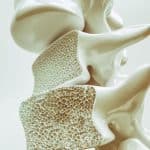Summary of Intestinal Bacteria – The Secret to Living to 100?:
Researchers from the University of Copenhagen have found a unique combination of intestinal bacteria and viral microorganisms in the gut microbiome of healthy Japanese centenarians, which may contribute to their longevity. The study found that specific viruses in the intestines can have a beneficial effect on the intestinal flora and overall health. Researchers hope that by understanding the dynamics of the intestinal flora, including the interaction between viruses and bacteria, they can engineer a microbiome that can help people live longer, healthier lives. Additionally, the study may help researchers understand how to optimize the bacteria found in the human body to protect it against disease.
*****
Unlocking the Secret to a Longer Life: The Unique Intestinal Flora of Centenarians
As we seek ways to extend our lifespan, some individuals seem to reach the century mark effortlessly. Researchers from the Novo Nordisk Foundation Center for Protein Research at the University of Copenhagen are journeying to uncover the secret behind their longevity. Studying 176 healthy Japanese centenarians, the researchers discovered a unique combination of intestinal bacteria and bacterial viruses contributing to their extended lifespan.
A Healthy Gut Microbiome
The intestinal bacteria of old Japanese citizens produce new molecules that make them resistant to disease-promoting microorganisms. Protected intestines can help individuals live longer than others. Specific viruses in the intestines can benefit the intestinal flora and, thus, our health. The intestinal flora of the Japanese centenarians is fascinating, having great biological diversity in both bacteria and bacterial viruses.
Mapping the Intestinal Bacteria and Bacterial Viruses
Using an algorithm designed by the researchers, they managed to map the intestinal bacteria and bacterial viruses of the centenarians. Understanding the dynamics of the intestinal flora, how different kinds of bacteria and viruses interact, and engineering a microbiome that can help us live healthy, long lives, can be gained from this research. The researchers identified that specific viruses contained different genes that could boost the bacteria, thus stabilizing the intestinal flora and counteracting inflammation.
Optimizing the Intestinal Bacteria
Learning how to optimize the bacteria found in the human body to protect it against disease is crucial. Discovering bacteria and viruses that positively affect the human intestinal flora can help more people live long, healthy lives. If we can get these bacteria and their viruses to move in with the people who do not have them, more people could benefit. Intestinal bacteria are a natural part of the human body and environment. Knowledge gained from understanding viruses and intestinal bacteria can affect our health and change the composition of intestinal bacteria.
Conclusion
Centenarians have revealed a unique combination of intestinal bacteria and bacterial viruses contributing to their extended lifespan. Understanding the dynamic interactions of bacteria and viruses in the intestinal flora and engineering a microbiome that helps us live healthy, long lives would be a huge breakthrough. Decoupling physiology and age-related diseases from aging alone could make society’s dream of immortality more possible.


